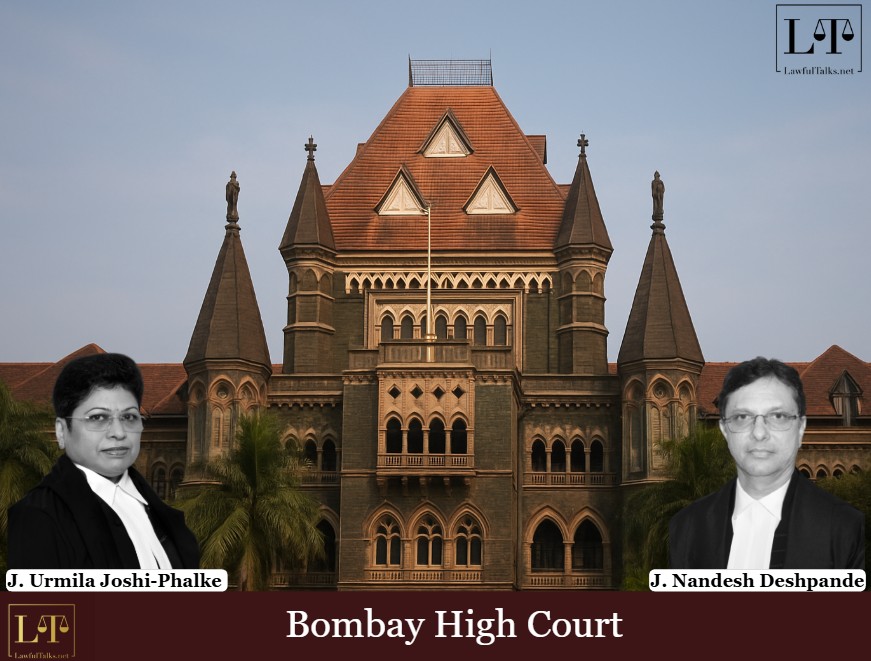Allahabad HC Sets Aside Afzal Ansari's Conviction, Allows Him to Continue as MP

In a recent judgment, the Bombay High Court, set aside a woman's murder conviction, reclassifying it as culpable homicide not amounting to murder under Exception 1 to Section 300 of the Indian Penal Code (IPC). The case concerned a woman who allegedly killed a man after he repeatedly pressured her to withdraw the rape complaint she had filed against him.

A Division Bench of Justice Urmila Joshi-Phalke and Justice Nandesh Deshpande of the Nagpur Bench of the Bombay High Court delivered this ruling while hearing an appeal challenging the December 21, 2005 judgment of the Additional Sessions Court, Washim, which had convicted the appellant for the murder of Madhao Gote.
Background:
The incident occurred on June 22, 2004, when the deceased, Madhao Gote—who had maintained sexual relations with the appellant on the promise of marriage but later refused to marry her—visited her house and repeatedly pressured her to withdraw the rape complaint she had lodged against him. In response, the appellant struck him on the neck with a razor (ustara) and then on the head with a pestle (khalbatta).
The Court observed that the trial court had placed significant reliance on the woman’s extra-judicial confession to a neighbour, to whom she admitted killing Madhao because he had been insisting that she withdraw the complaint.
Legal Reasoning:
The Court rigorously examined whether the case qualified under Exception 1 to Section 300 IPC, which excludes certain acts from being considered "murder" if they are committed under grave and sudden provocation and without premeditation or intent to kill.
The bench observed that, “Provocation is an external stimulus which can result into loss of self control. Such provocation and the resulting reaction needs to be measured from the surrounding circumstances. The provocation must be such as will upset not merely a hasty and hot-tempered or hypersensitive person, but also a person with calm nature and ordinary sense. What is sought by the law by creating the exception is that to take into consideration situations wherein a persons with normal behavior reacting to the given incidence of provocation. Thus, the protection extended by the exception is to the normal person acting normally in the given situation.”
Based on the evidence and surrounding circumstances, the Court found that the deceased had repeatedly assaulted the appellant and persistently pressured her to withdraw the rape complaint, which ultimately caused her to lose self-control.
The bench stated,“Admittedly, there was no intention on her part and she has not exceeded the act by causing various injuries to the deceased. From the evidence it can be inferred that, the accused due to the act of the deceased lost her control and caused the death of the deceased. Admittedly, there was no intention on her part to commit the murder of the deceased. It was because she was subjected for sexual assault by the deceased on the promise of marriage and subsequently shown his inability to perform the marriage and insisting her to withdraw the complaint.”
Ultimately, the Bench concluded that the deceased’s death was caused by the accused in a state of grave and sudden provocation, without any intention to commit murder. Accordingly, the act fell within the ambit of Section 304 Part II of the Indian Penal Code (IPC).
Case Title : PUT vs State of Maharashtra (Criminal Appeal 86 of 2006)
Advocate for the Appellant: Mr. R.L. Khapre, Senior Advocate a/b Mr. Mandar Deshpande
APP for the Respondent/State: Mr. M.J. Khan,
Leave a Comment

Nikita Muddalgundi
Second Year, B.A. LL.B student
Latest Posts
Categories
- International News 19 Posts
- Supreme Court 326 Posts
- High Courts 339 Posts







































































































































































































































































































































































































































































































































































































































































































